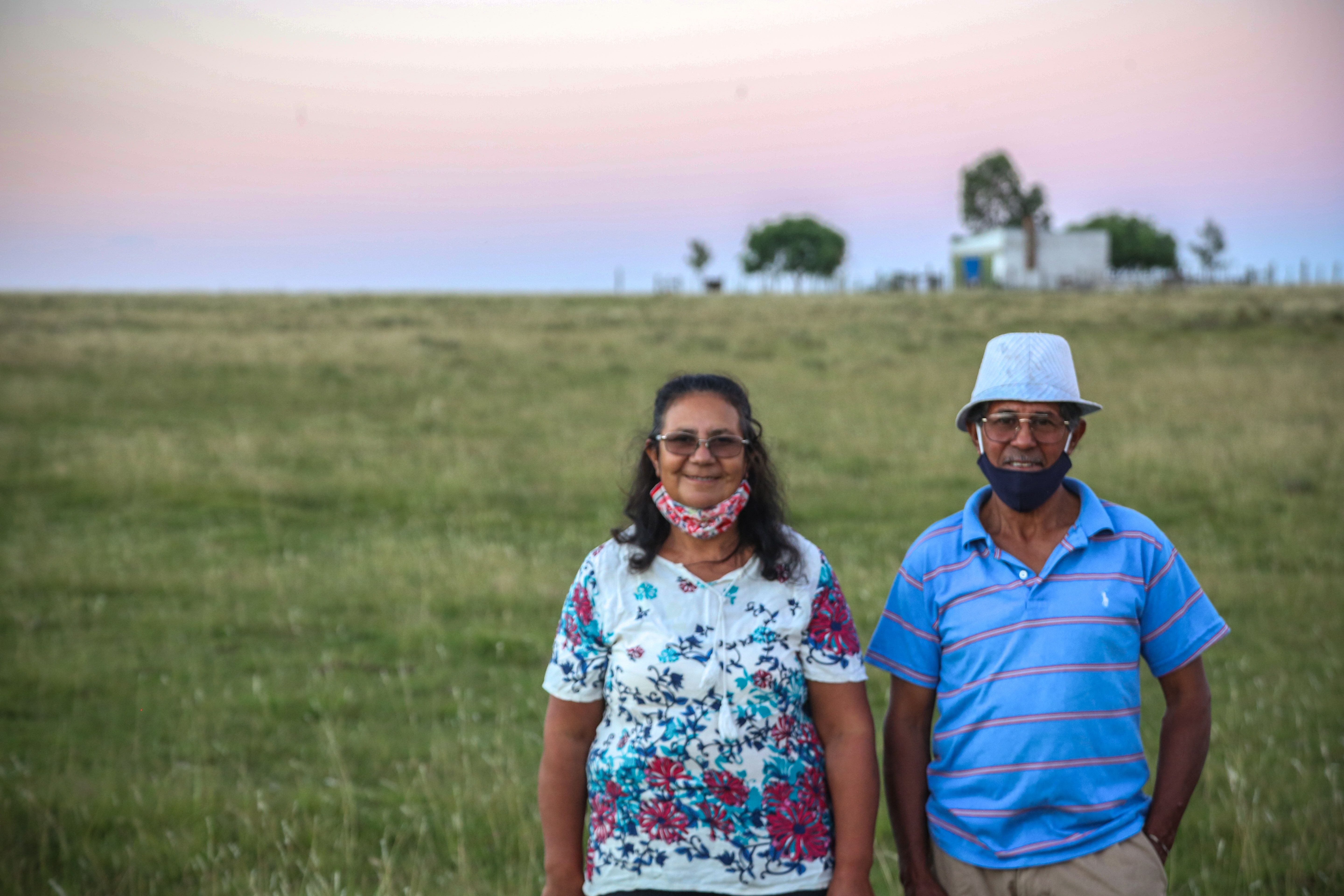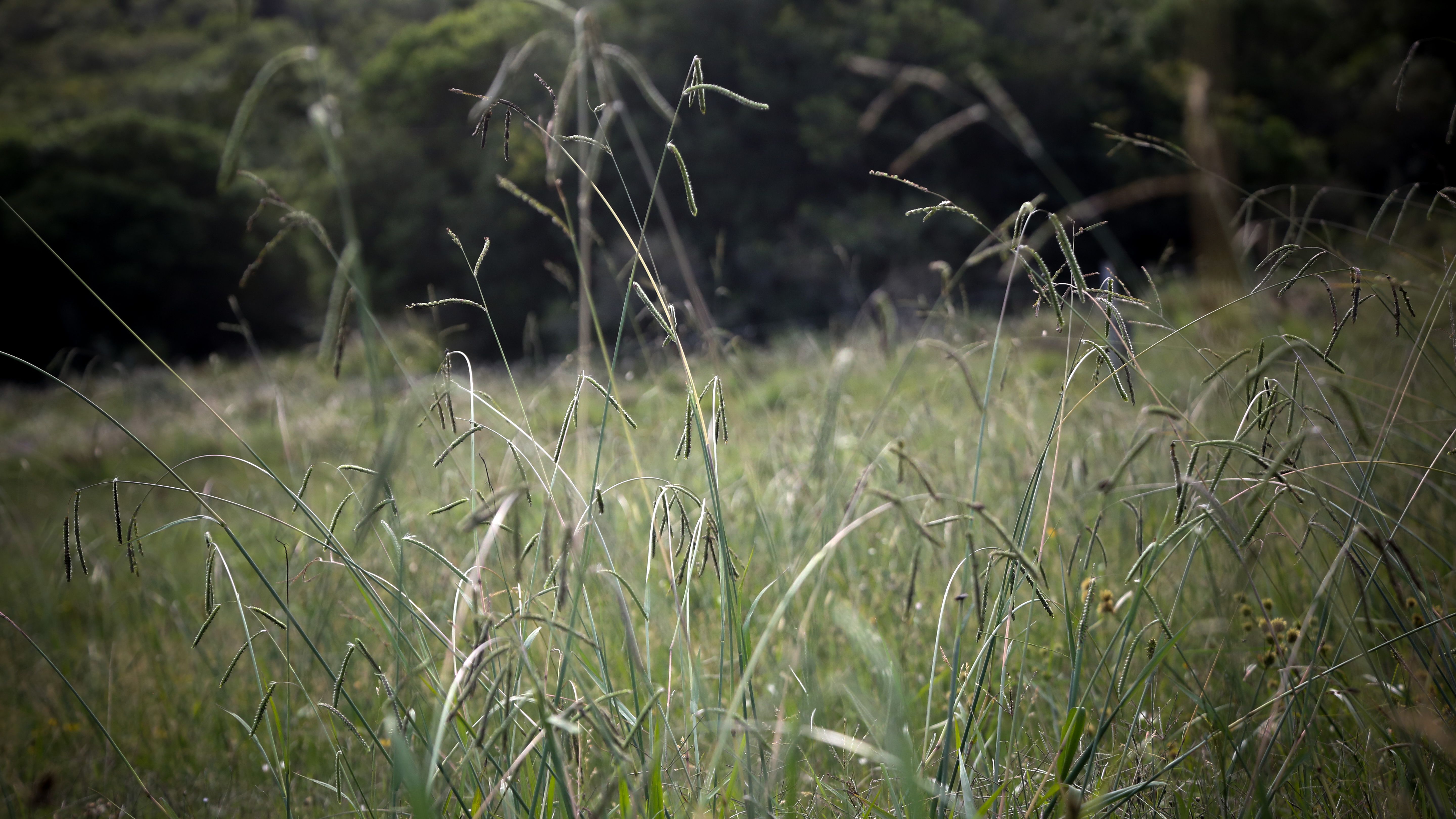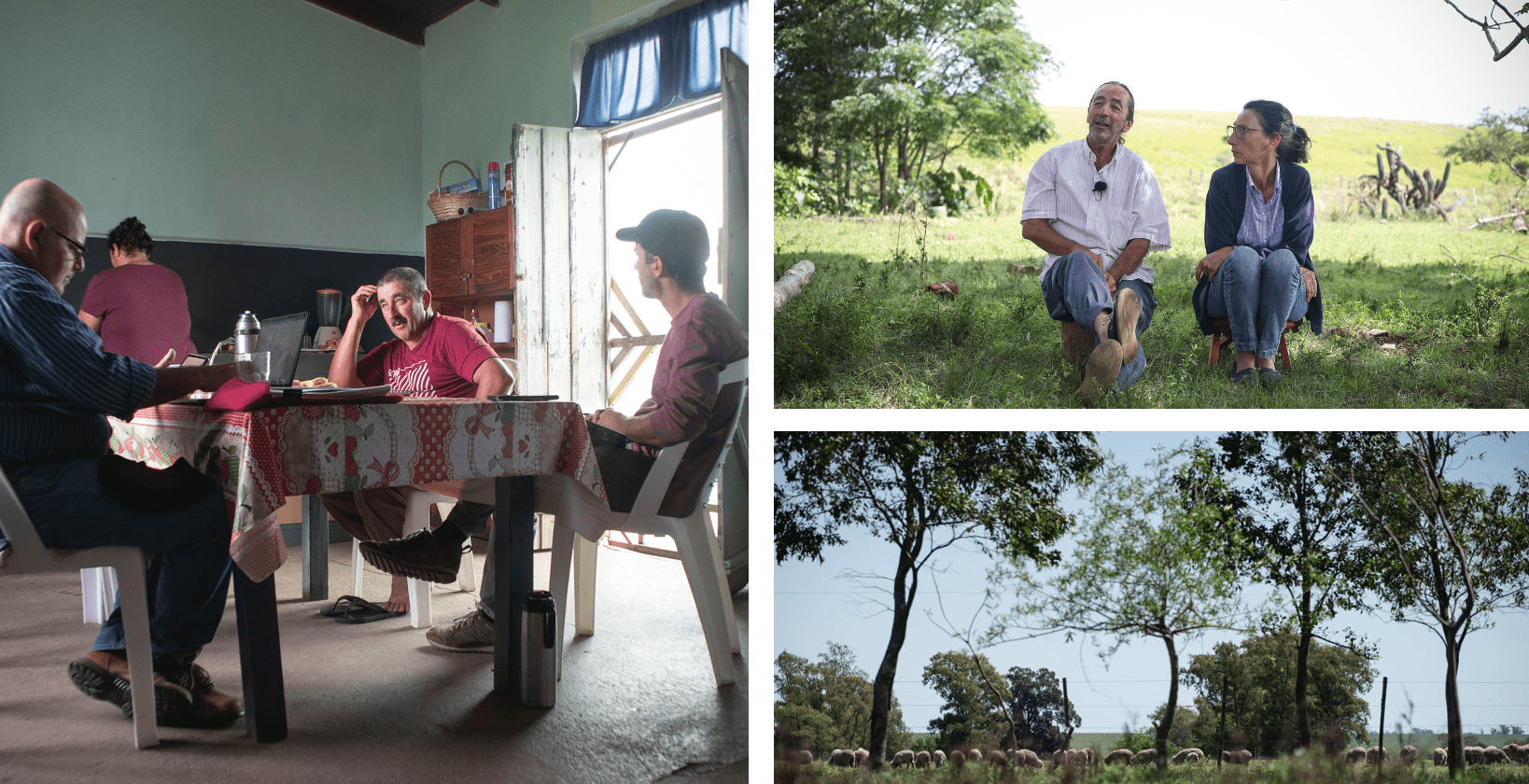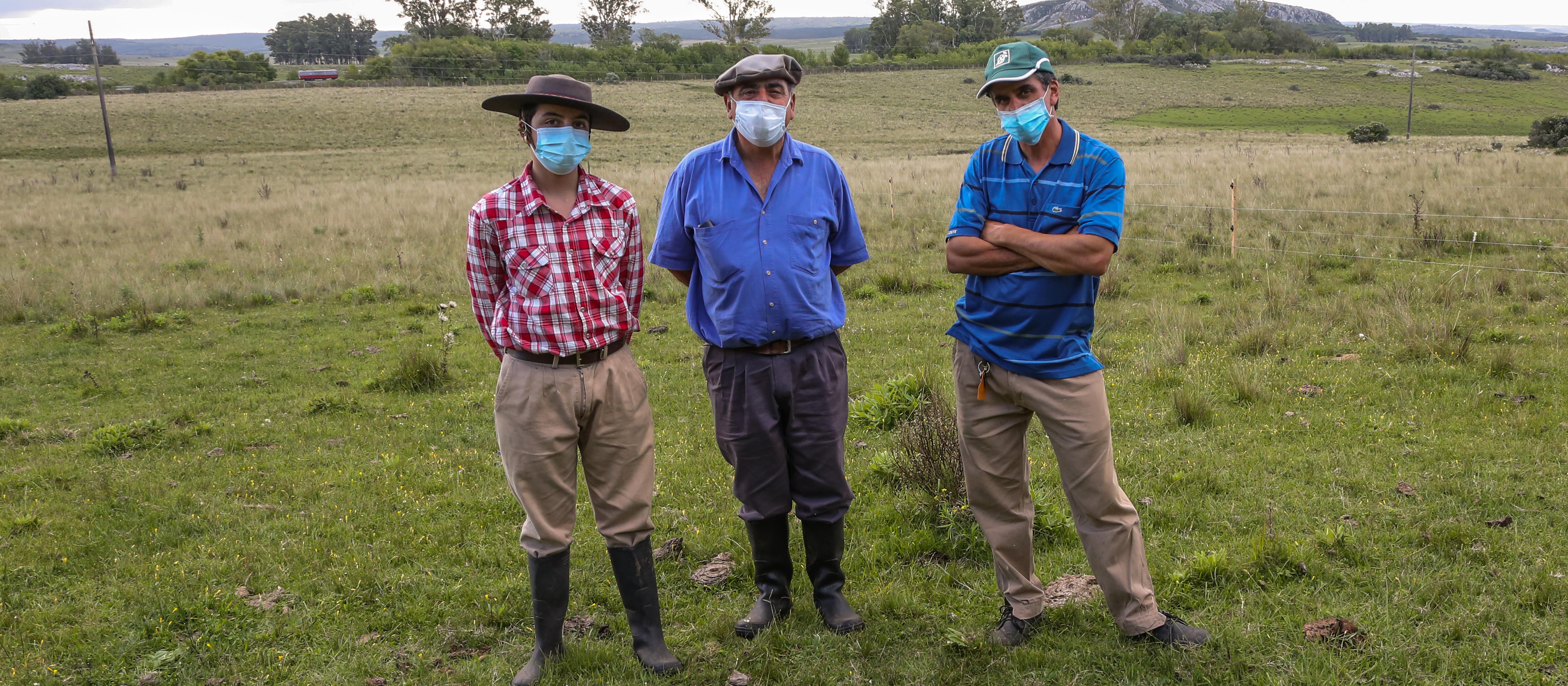Montevideo, Uruguay, 27 August - After the diagnostic stage, the team of field technicians of the Resilient Family Farming Project (GFR), within the framework of the Resilient Food Production Sector of the EUROCLIMA+
Programme, is implementing the farm redesign proposals together with the producer families, using the implementation of the best livestock farming practices that best fit each farm situation, in order to achieve the objectives set. Several beneficiaries of the project give an account of their experience.
See the video:
"The lack of data recording and information is one of the main problems diagnosed on the farms," says Mario Couture, technical advisor to Abel González and Sandra Rodríguez, sheep farmers in the department of Salto. "Mario taught us to see the costs we had in production," says Sandra.
 |
José Fernández is a cattle breeder in the department of Rocha. He has managed to improve forage production in the natural field by adjusting the stocking rate. "Because of the drought, we had no grass in the field, and by lowering the stocking rate, the cattle improve their body condition. The first change is seen in the grass, and from there it has repercussions on everything else," José said.
 |
Gustavo Isasa and Raquel Olivera, livestock producers in the department of Tacuarembó, have also implemented improvements in pasture management: "The field is the cow's main food and we have to take care of it. We set out to increase the number of pastures and take advantage of the potential of native grasses such as Canutillo."
The brothers Gonzalo and Daniel Aldabalde have been working along the same lines in the department of Lavalleja, together with their technical advisor José Mesa, who said that "the idea is to integrate the fields more and learn to manage the categories in a different way". For their part, Daniel and Gonzalo explain that "thanks to this project we were able to divide the pastures and rotate grazing, and we did it in the midst of a drought."
For their part, Eduardo Rodríguez and Sonia Banat, producers in the department of Maldonado, have implemented practices that shorten livestock production cycles and improve production and family income. "The idea is to let the calves mate at 15 months, and prepare the ewes to produce more lambs”. Their technical advisor, Roberto Pazos, added that "these practices also help reduce greenhouse gas emissions per kilo of meat produced."
 |
The best livestock husbandry practices also include aspects of reproductive management and animal health prevention. Diego Rosadilla, a veterinary advisor in the region, comments that "sometimes it seems to us that prevention is a very high cost, but when we analyse the results and their indicators, we realise that they help a lot". The project's team of veterinarians has drawn up health plans based on the diagnoses carried out together with the producer families. Mariana Dávila, a veterinarian from the Sierras del Este region, explains: "The health plan is based on identifying with the producers a timetable with strategic interventions and more tactical interventions, which is when the animals present parasitosis, for example. Ticks are one of the problems that farmers are most concerned about, because they did not have a control and eradication plan."
Other animal management technologies are also being promoted: "Reproductive vaccinations, ultrasound diagnostics for monitoring calving, bull and ram inspection, are new technologies that are being used more and more and are very important," added Diego.
About the project "Resilient Family Livestock Production"
The project Co-innovation for resilient food production in family livestock farming on natural land in Uruguay (Resilient Family Livestock Farming) implemented by the National Commission for Rural Development (CNFR-COPROFAM) in partnership with the National Institute for Agricultural Research (INIA) of Uruguay, as part of the EUROCLIMA plus actions, supports 52 livestock farming families in the two most vulnerable regions, for the implementation of best practices that increase the adaptation and resilience of these systems to climate variability and change. Technical assistance is provided through agronomists and veterinarians linked to the 6 local grassroots organisations participating in the project, applying the Co-innovation methodological approach, which consists of 4 phases: farm Diagnosis, farm Redesign, Monitoring, and Evaluation of results.
For more information
Editor: Eng. Agr. Marcello Rachetti (CNFR), editor and project communications manager. ganaderíThis email address is being protected from spambots. You need JavaScript enabled to view it.
Resilient Food Production Sector: This email address is being protected from spambots. You need JavaScript enabled to view it.
Source of the photos: Resilient Family Livestock Farming Project



